Déjà View: Why Do We Watch Some Movies Over and Over?
Five reasons we rewatch, according to science and stuff
I’m writing to you from the Mayo Clinic in Rochester, Minnesota, where my mom is recovering from what we hope was a successful cancer surgery. Every night, our family assembles in her hospital room, and the inevitable question arises: what movie should we watch?
For a medical facility consistently ranked among the best in the world, I’d grade their in-room movie options somewhere below the in-flight offerings on Spirit Airlines - a boneyard of unloved sequels, threequels, and joyless reboots no one asked for. We’ve tried (and failed) to make it through a few.
Glinting in the mire are a few sparkly gems from the past - The Goonies, A League of Their Own, Back to the Future - movies I have seen what feels like hundreds of times and would gladly watch hundreds more.
What is it about certain movies that call us back, over and over, while others - even great ones - we’re content to experience just once? The obvious reasons come to mind: we enjoy them more than others, and we’d rather spare ourselves the risk of the unknown in favor of a sure bet.
But is that all? What else drives this impulse?
I’m hardly the first to wonder. Psychologists, media scholars, and even neuroscientists have studied this tendency. It turns out there are some fascinating reasons we return to the same films again - and again, and again. Here are five of them.
Underexposed is an ad-free weekly film publication powered by readers. Support the future of cinema culture - because our tech lords sure as hell won’t. Go premium for bonus articles, videos, and more.
5. The Illusion of Control
How many times has Britney confessed she did it again? And why, after 25 years, do we love it more than ever?
Repetition is a core element of music across cultures and centuries. Psychologists call this the “mere exposure effect,” the tendency to prefer what we’ve encountered before. The same principle helps explain why we rewatch movies, even ones we don’t particularly love. Familiarity puts us at ease, that’s obvious enough. But musicology professor Elizabeth H. Margulis takes it a step further. She suggests that repeated listening or viewing can create a strange but satisfying illusion called “conjuring power” - the feeling that we’re controlling what happens next, as if the characters are responding to our unspoken cues.
I experience this phenomenon a lot when rewatching thrillers - my favorite genre. “That plane’s not here for the corn, Roger!” I can’t help but blurt as Cary Grant waits at a dusty Indiana bus stop in North by Northwest. I’ve seen the film roughly 10,000 times, and yet it still feels like I’m right there with him. Like a well-known pop song, a familiar movie draws us in, making us feel like participants, co-conspirators, even omniscient protectors - rather than mere passive observers.
4. Deeper Meaning
Some movies reward rewatching because they are like puzzles: Shane Carruth’s Primer, with its time-looping pretzel plot, or Tarkovsky’s Stalker, which seems to spiritually transfigure itself on each viewing. But even simpler films can unfold new layers over time.
This week, while rewatching Edgar Ulmer’s 1946 poverty-row noir Detour with my family, I noticed small but potent details I’d missed before: the stripes on Tom Neal’s pajamas foreshadowing a jailhouse uniform; the delightful name of the nightclub (Break O’ Dawn), the wickedly pulpy narration (“That's life. Whichever way you turn, Fate sticks out a foot to trip you.”).
Sometimes repeated viewings deepen meaning to the point of dissolving it. Scientists call this semantic satiation, the effect where repeating a word like “pineapple” enough times shifts your attention from its meaning to its raw sounds. Pie nap pull. Pine app all. I’ve had this experience with certain movies. When you rewatch something enough times, your eyes drift to the margins, and the seams start to reveal themselves.
Ever noticed the little boy in the cafeteria shooting scene in North by Northwest - the one plugging his ears before the gun goes off? He’s in the background, facing away from the camera, apparently rattled after too many loud bangs in previous takes. It took me dozens of watches before I noticed the boy. Now I can’t unsee him.
3. Same Movie, New You
As a hyper-imaginative kid, I was terrified of almost everything, including scary movies. The first one I remember attempting was The NeverEnding Story. I didn’t make it to the end. The gnarly creatures and tragic horse death were too much. A few years later, I tried again - and loved it. Not just the creatures, but the raw emotional gravity of Bastian’s isolation and Atreyu’s bloody, muddy quest. Recently, I saw it yet again on an airplane, and chuckled at the campy effects and humor that had eluded me as a kid. But when that horse sank into the Swamp of Sadness, I felt a familiar gut-punch.
Research shows that early emotional experiences, especially those tied to strong sensory stimuli, are encoded more vividly in memory. The amygdala, the brain's fear center, interacts with the hippocampus to tag emotionally intense moments with unusual clarity. When we return to the movies that first frightened or moved us, we can sometimes summon the original emotional response, while contemplating how our lives are now completely different.
2. Friends Without Benefits
The Office, a network comedy series that ended over a decade ago, reportedly clocked over 87 billion minutes of viewership in 2020 in the United States alone. It’s a strange thought: during a global pandemic that forced millions to work from home, we chose to unwind by returning, willingly, to a beige fictional workplace ruled by a bumbling regional manager.
What drives that impulse? One answer lies in the concept of parasocial relationships - the one-sided emotional bonds we form with fictional characters. These days, we mostly hear this term in reference to influencers, but neuroscientist Dylan Wagner at Ohio State University studies how our relationships with movie and TV characters affect the brain. His findings are fascinating:
“The closer [subjects] felt to a character, the more likely it was that thinking about the character would elicit a response in the brain that was similar to the response to a real person, like an acquaintance, if not a friend.”
This may explain why so many men of my generation feel a deep kinship with Donny, Walter, and the Dude, while our female counterparts opt to hang with Bridget Jones, or go rollin’ with the homies from Clueless. It isn’t just the stories we return to, but the illusion of camaraderie.
1. The Rewatch as Ritual
Every holiday season, my family gathers to watch Scrooge - a yuletide tradition since I was a tike. This year, my 9-year-old nephew and 6-year-old niece joined us for the first time. My eyes flicked between the screen and their faces. My niece, unnerved by the ghosts, retreated to her Legos, while my nephew watched to the end, enthralled.
Why do rituals like these feel so vital? Science has the answers. Nostalgia is shown to play a crucial role in psychological comfort, especially during uncertain times, while traditions reinforce identity and belonging - a proven benefit for self-esteem and family cohesion across generations. Ever since my dad introduced my nephew to The Three Stooges, they’ve developed their own private lexicon of inside jokes - much to my sister’s chagrin.
Tonight will (hopefully) be my mom’s last night in the hospital. We could roll the dice with another flavorless reboot, or whatever happens to be playing on TCM. But maybe we’ll just throw on North by Northwest, Scrooge, or another well-worn family favorite.
This might seem at odds with my mission here at Underexposed - to champion more adventurous movie watching. Yet rewatching has its own unique value. In turbulent times like these, rewatching offers a comforting way to pass the hours and, more importantly, soothe the heart.
What movies do you find yourself returning to again and again? Which films have become rituals in your home?
Share your favorites in the comments.
News Reel
This week in The Ankler,
investigates the startling demise of original animated movies. His primary suspect? The shrinking of the human mind. “Across the culture, it feels as though we live in an atmosphere where the mind can no longer be challenged. […] The hunger for new stories lives somewhere in the heart of humanity, but we’re going to have to work harder to tap it.”What if the next Disney wasn't a corporate giant, but an artist-owned collective? Yancey Strickler, co-founder of Kickstarter, is exploring a new approach that could transform how creative people “build sustainable careers, amass collective wealth and escape the burnout of hustle culture.” Sign me up!
Everyone’s buzzing about the New York Times 100 Best Movies of the 21st Century, but you should also check out this impressive list of 50 lesser-known gems compiled by
. So many of these titles are new to me.“Should cinemas embrace the responsibility of film education?” asks
: “Most venues sit empty from 9am to noon—it seems obvious that this time could be repurposed for film clubs, community courses, school partnerships, and adult education workshops.”
And now, this week’s Underexposed Movie Pick -
Detour (1945)
In the annals of noir, Detour is a scrappy outlier - a 68-minute shadow play shot on a shoestring in a matter of days - six, according to director Edgar Ulmer, though others have disputed this. It tells the story of Al Roberts, a down-on-his-luck piano player whose ill-fated hitchhike spirals into a nightmare of mistaken identity, murder, and relentless bad luck.
What’s remarkable about Detour is how its shaggy edges and stark fatalism still cast a potent spell, even all these years later. German filmmaker Wim Wenders hailed Ann Savage's performance as “30 years ahead of its time,” while Errol Morris has declared Detour his favorite film: “It has an unparalleled quality of despair, totally unrelieved by hope.” Detour is the only B movie to be added to the National Film Registry for its cultural, historical, and aesthetic significance. You can see it for yourself on the people’s platform, Tubi.
That does it for this week on Underexposed. Thanks for reading! See you next Friday,
Alex

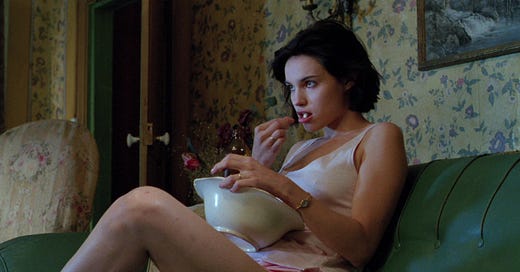


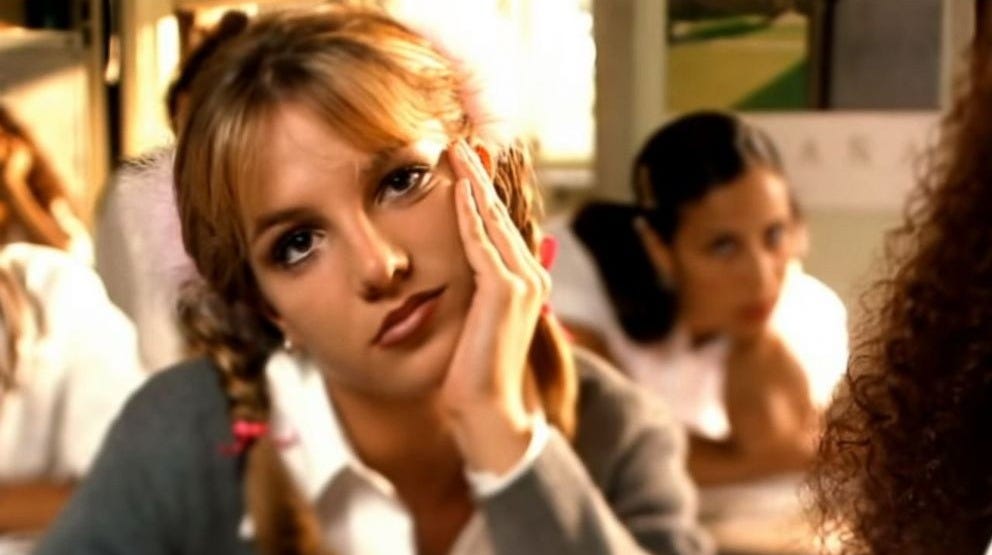
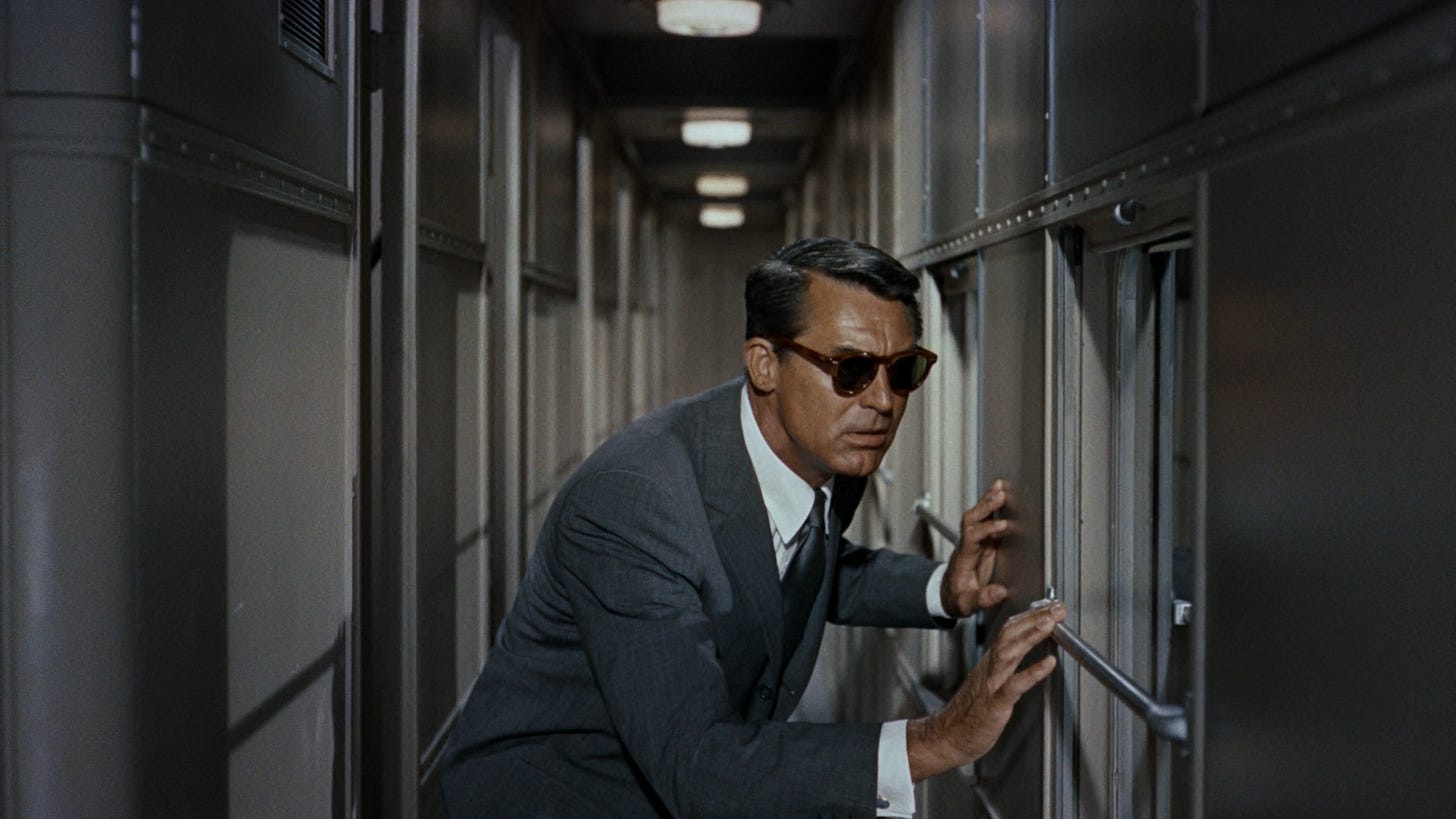
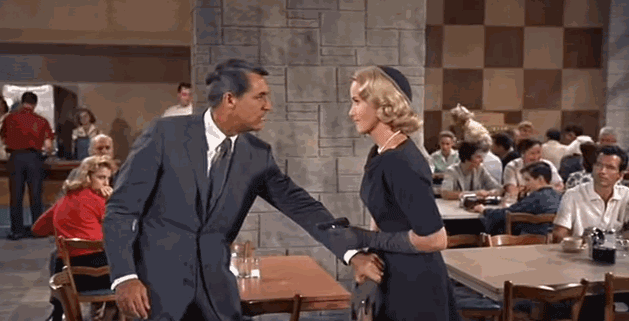
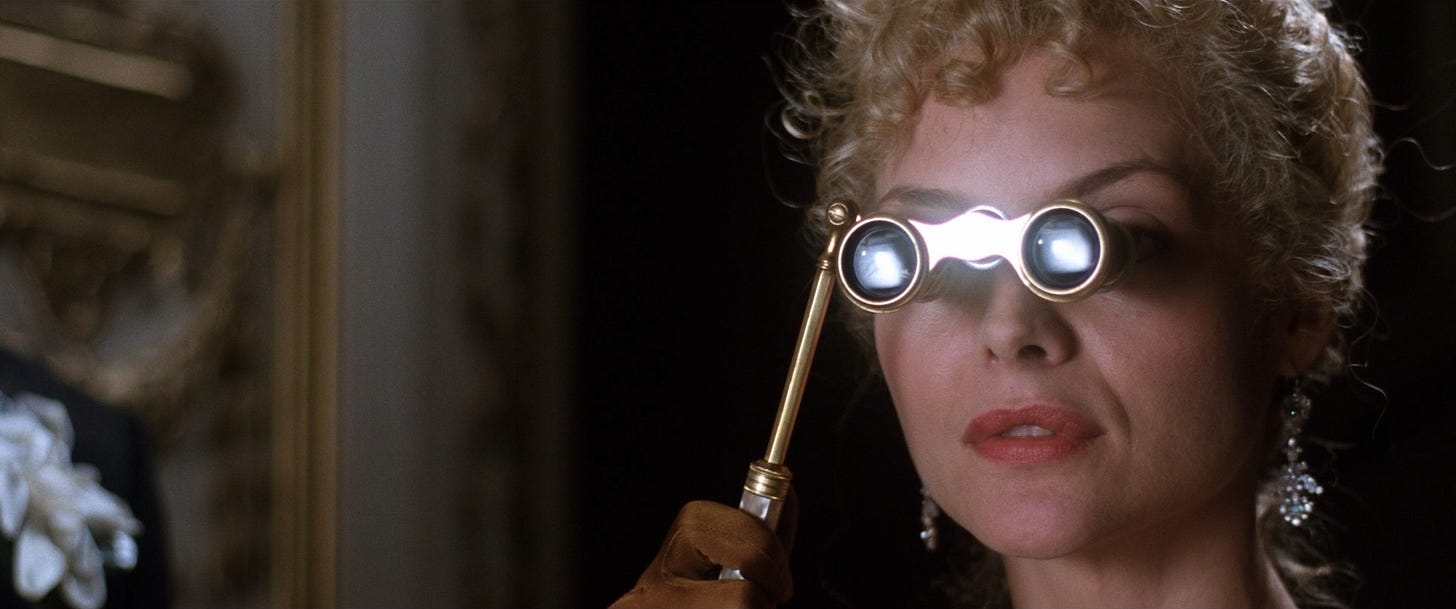


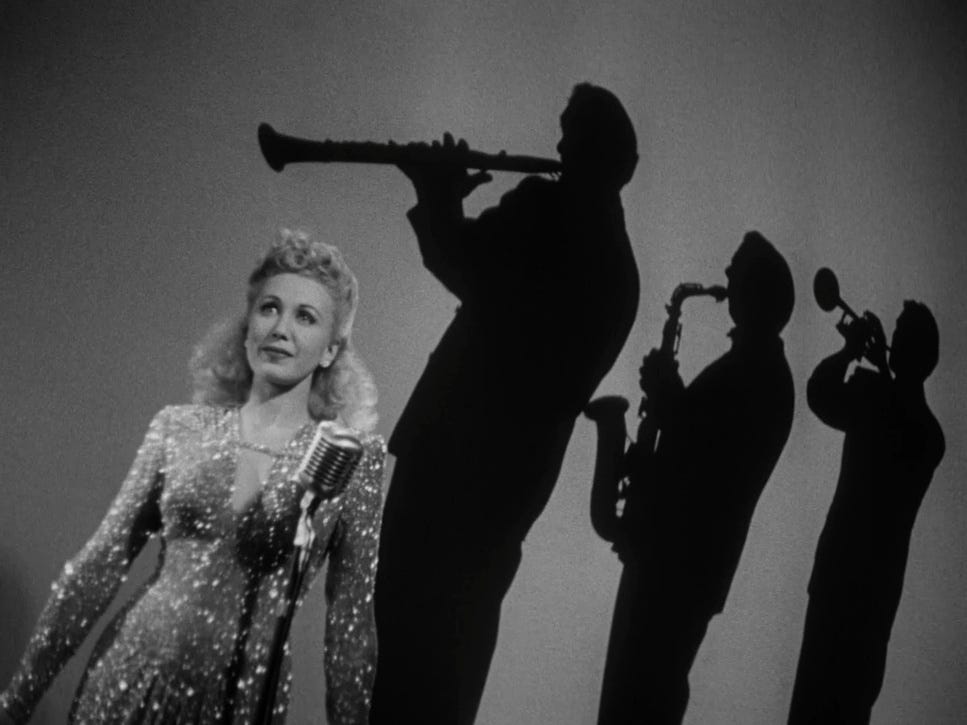
Sorry to hear of your Mom's health. So great that you all get to be with her.
Hoping you mom feels better soon. “Detour” is an all-timer of a pick. I don’t think I ever understood David Lynch’s “Lost Highway” specifically or his approach to noir generally before I saw this movie.